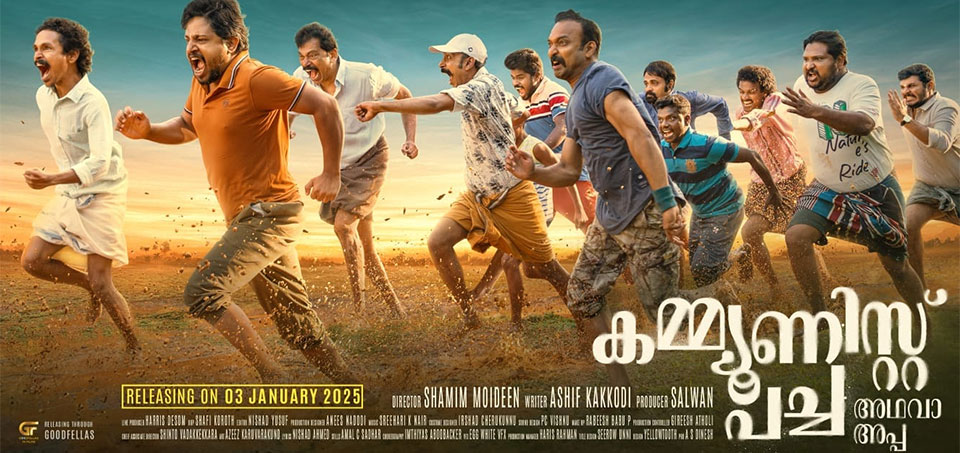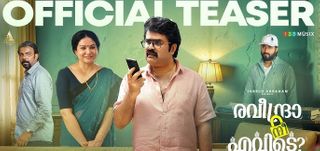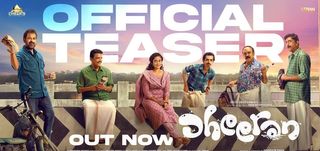
Communist Pacha Adhawa Appa Movie Review
Communist Pacha Adhawa Appa: Ambitious Metaphors, Disjointed Narrative
Shamim Moideen's 'Communist Pacha Adhava Appa' presents an ambitious exploration of societal issues through metaphorical imagery and cricket, but its lack of a cohesive narrative or central conflict leaves the film thought-provoking yet ultimately unsatisfying.Director Shamim Moideen's 'Communist Pacha Adhava Appa' offers an ambitious and metaphorical narrative, but its attempt to tackle multiple societal issues through a cricket ground as a microcosm of society ends up being more abstract than cohesive. The film delves into themes of politics, religion, and the caste system, all set against the backdrop of the Covid-19 pandemic, yet it struggles to find a strong central conflict or narrative thread, ultimately leaving the viewer with a series of thought-provoking but disconnected moments.
Set in the pandemic period, the story follows Wahid (Zakaria), who returns to his hometown in Kannur from his workplace in Bengaluru. He finds solace in his home life with his wife, Khadeeja (Nazlin Jameela Saleem), and their two sons. His mother, played by Sarasa Balussery, is fond of him and she feels sad whenever Wahid raises his voice in the house. However, Wahid's sense of security is shattered when he realizes his company has withheld his salary and benefits. Seeking an outlet for his frustrations, Wahid reconnects with his childhood friends who gather daily for cricket matches at a small playground near his house. Here, cricket acts as a symbolic arena where larger societal issues like politics, religion, and class are played out.
The arrival of Wahid's schoolmate, Babeesh (Shamsu Mankarathodi), introduces a layer of tension, as Wahid is wary of his arrival to the group. The film also introduces a range of characters with political and social relevance, such as Dharman (Anuroop), a military man, and Ani (Sanandhan), who belongs to a backward community. Their interactions reflect the political and societal divide that permeates the broader narrative.
Despite the intriguing setup, the film struggles to ground its metaphorical framework in a concrete plot. While the idea of using cricket to explore contemporary issues is refreshing, the lack of a central conflict or strong narrative arc makes the experience feel aimless at times. The moments of tension, whether within the cricket ground or in Wahid's home, never build into anything substantial, leaving the viewer to wonder what the film is ultimately trying to say.
Zakaria, the director of 'Sudani From Nigeria', brings a calm complexity to his portrayal of Wahid, effortlessly embodying the internal conflict of a man trying to make sense of his life in a time of uncertainty. His performance is nuanced, as he navigates his changing relationships and growing frustration. Nazlin Jameela Saleem's portrayal of Wahid's wife, Khadeeja, is one of the standout performances of the film. She brings warmth and authenticity to the role of a supportive yet pragmatic homemaker, effectively grounding the film's more philosophical undertones.
The film's direction by Shamim Moideen is steady, but the focus on metaphorical imagery and abstract themes sometimes hampers its flow. The cricket ground, while a potent symbol, is not enough to tie the film's many ideas together, and the scenes outside the ground, such as the tension between Wahid and his family over financial struggles, feel disconnected from the larger narrative.
The film employs various metaphorical images, such as Chinnamma (Kudassanad Kanakam) stealing withered sticks, fruits, and palm leaves, and a peacock perched on an excavator, that invite the audience to read deeper into the social and political commentary. However, these images-while intriguing-often feel disconnected from the film's narrative, rather than offering clear insights. The constant shifts between the cricket ground, Wahid's home, and other subplots (such as Shahul, the struggling PhD scholar, and Babu searching for a tree stump) scatter the film's focus, and the metaphors, though thought-provoking, are insufficient to hold the viewer's interest for the entire runtime.
'Communist Pacha Adhava Appa' offers a quasi-unique take on contemporary societal issues, presenting them through the lens of cricket and metaphor. The film's naturalistic setting, organic performances, and intriguing thematic underpinnings make it an ambitious effort. However, its failure to establish a clear, driving conflict or cohesive narrative ultimately weakens its impact. The film juggles too many ideas without fully developing any of them, leaving the audience to ponder its meaning without a satisfying conclusion. While the film's metaphorical references and performances are commendable, its lack of a solid plot makes for a passive viewing experience.



















